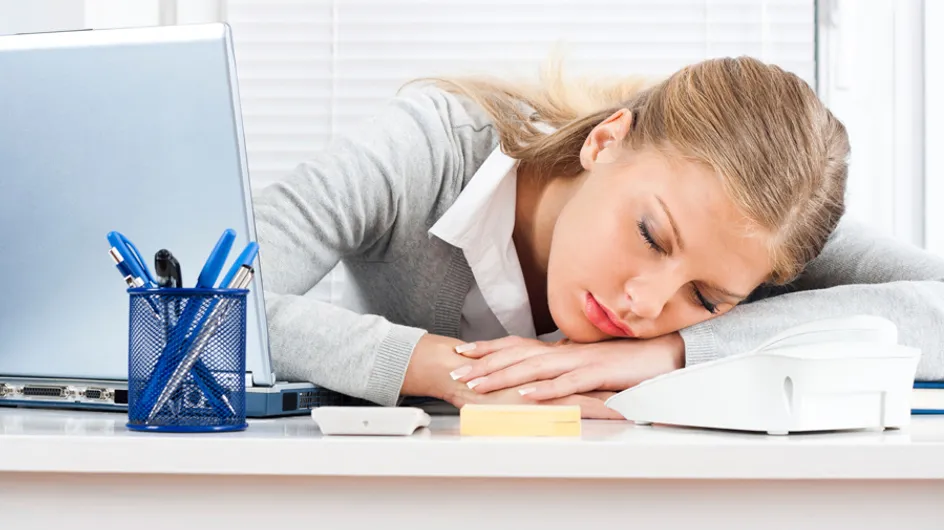We all know how important those Z's are. Sleep boosts our immune system and helps us cope with the physical and mental stresses of the day, which is why it’s important that we take preventative measures to stop ourselves from turning into sleep-deprived zombies.
But getting a decent slumber is no easy thing, in fact a recent study by Crampex surveyed 5,000 British adults and discovered that a massive 86% suffer with sleep disturbances and 1 in 10 wake up 5 times a night or more, so what effect is this sleep deprivation having on our wellbeing?
Independent sleep expert Dr Neil Stanley, who has been involved in sleep research for more than 31 years, says there's quite a few things: “Poor sleep makes you crave ‘junk’ food and not want to exercise, so you end up not eating a healthy diet or getting the exercise your body needs.
"When we’re tired we’re more prone to mood swings and have poorer inter-personal relationships. Exhaustion has also been shown to be related to a reduction in cognitive performance, memory, reaction time and problem solving.”
If that’s not bad enough in the short-term, being exhausted can also have serious and lasting ramifications on our health and wellbeing too.
“In the long-term poor sleep has been shown to be associated with shortened life spans and higher mortality rates,” Dr Neil says. “There’s an increased risk of heart disease, stroke and stomach problems, as well as obesity, Type 2 Diabetes and Alzheimer’s.”
Hmmm, as if we didn't have enough things to worry about to keep us awake at night!
But sorting out your sleeping is possible, and there's no better time than now. Perhaps the best place to start is to stop putting pressure on yourself in terms of how much kip you need. The notion of a recommended 8 hours isn’t necessarily true, in fact the amount of sleep you need is personal to you.
“Sleep need is individual like height or shoe size and anywhere between 3 and 11 hours can be considered normal, although what is important is that you get the right amount of sleep for you,” Dr Neil advises.
“Your sleep need is genetically-determined; if you are a 9-hour a night person you need to endeavour to get 9 hours, but if you are naturally a 4-hour a night person you will be wasting your time if you are trying to get more. Simply, if you feel awake and function at a high level during the day, you’re probably getting enough sleep, but if you feel sleepy the next day, then for whatever reason you are not getting enough sleep.”
If you’re having an issue with your sleep, it’s important that you don’t just ignore your tiredness and cross your fingers that you’ll catch up on sleep at some point.
If you're struggling with energy levels during the day, try not to self-medicate with caffeine, it may be a good temporary cure to improve alertness and concentration but in the long run continual cups of tea and coffee can develop into a dependency that makes it even harder to nod off at night.
Dr Neil says: “The prerequisites for good sleep are a quiet mind and a relaxed body.
“Look at your lifestyle (commitments, stress, shift work, alcohol etc.) and your environment (your bedroom should be cool, dark and quiet) to see what potentially could be disturbing your sleep. Small changes can make a surprising difference, although in more serious cases you should always go to your GP for advice.”
Check out our better sleep checklist:
1. Try not to eat or drink 3 hours before sleeping.
2. Leave those devices alone before bed - that means your tablet, phone and laptop! Give yourself space to unwind.
3. Try and get into a bed routine, so your body knows your regular bedtime hours.
4. Light sleepers might find earplugs help them to get through the night undisturbed.
5. Invest in some blackout blinds for an optimum sleeping environment.
6. Make sure your duvet cover is not too warm or too cool as this could be disturbing your sleep.
7. Relax your mind before bedtime and make a rule not to think about work or other life stresses.
8. Try sitting and meditating for 15 minutes before bed to get your mind and body relaxed.
9. Lavender is a good sleep stimulator, try a spritz of lavender mist on your pillow.
10. A warm bath before bed with a few drops of lavender oil will see you feeling snoozy in no time.
Remember that sleepwalking through life shouldn’t be the norm, especially seeing as we all lead such busy and hectic lives. Getting a good night’s sleep will not only mean that you can forget the under-eye concealer once in a while, but you’ll be happier and healthier and able to lead life to the fullest.
You’ll also be ready to face the world head-on with a beautiful smile, instead of a massive yawn.
Are you getting enough sleep? Tweet us @SofeminineUK!













